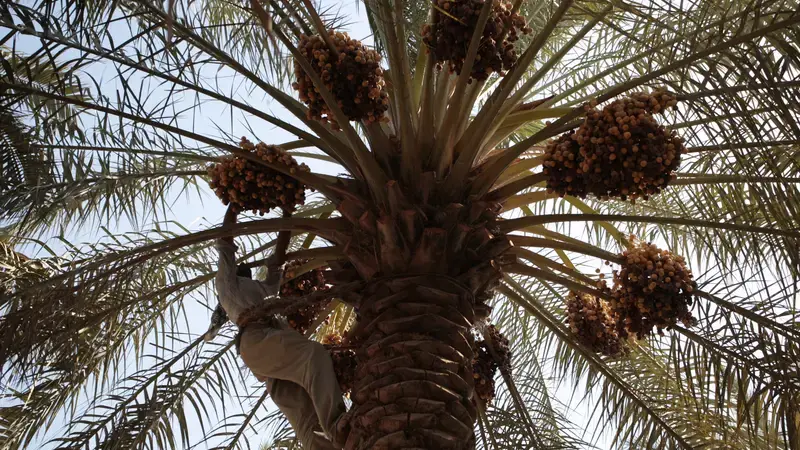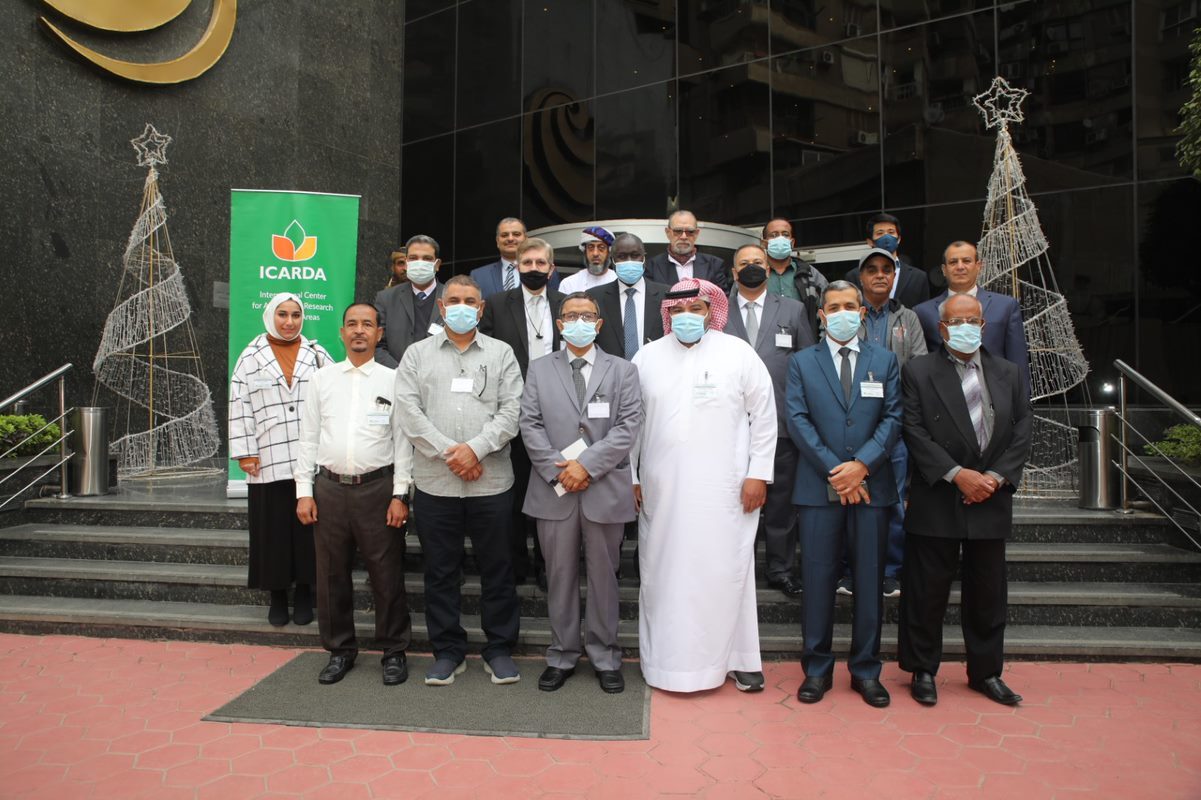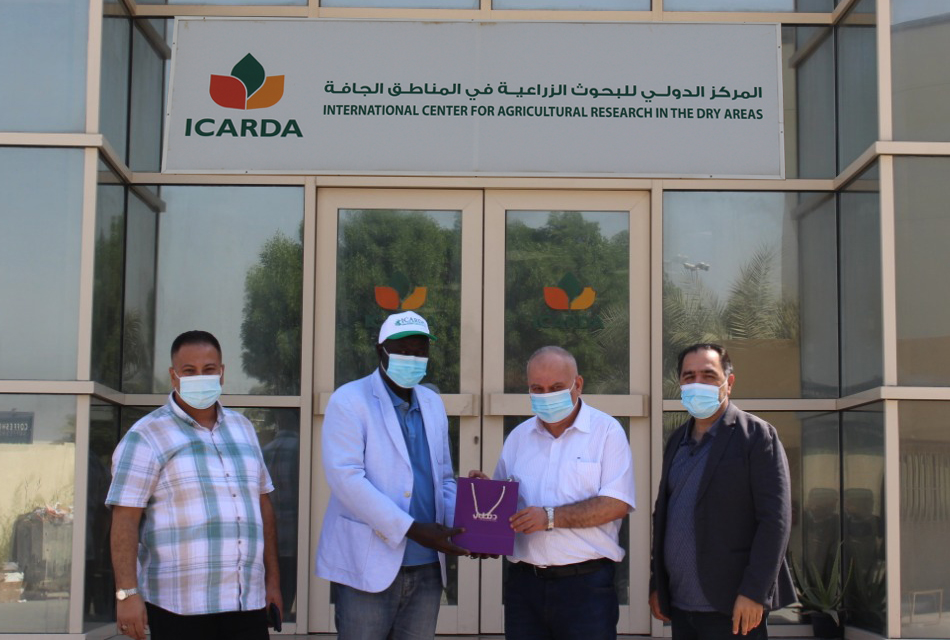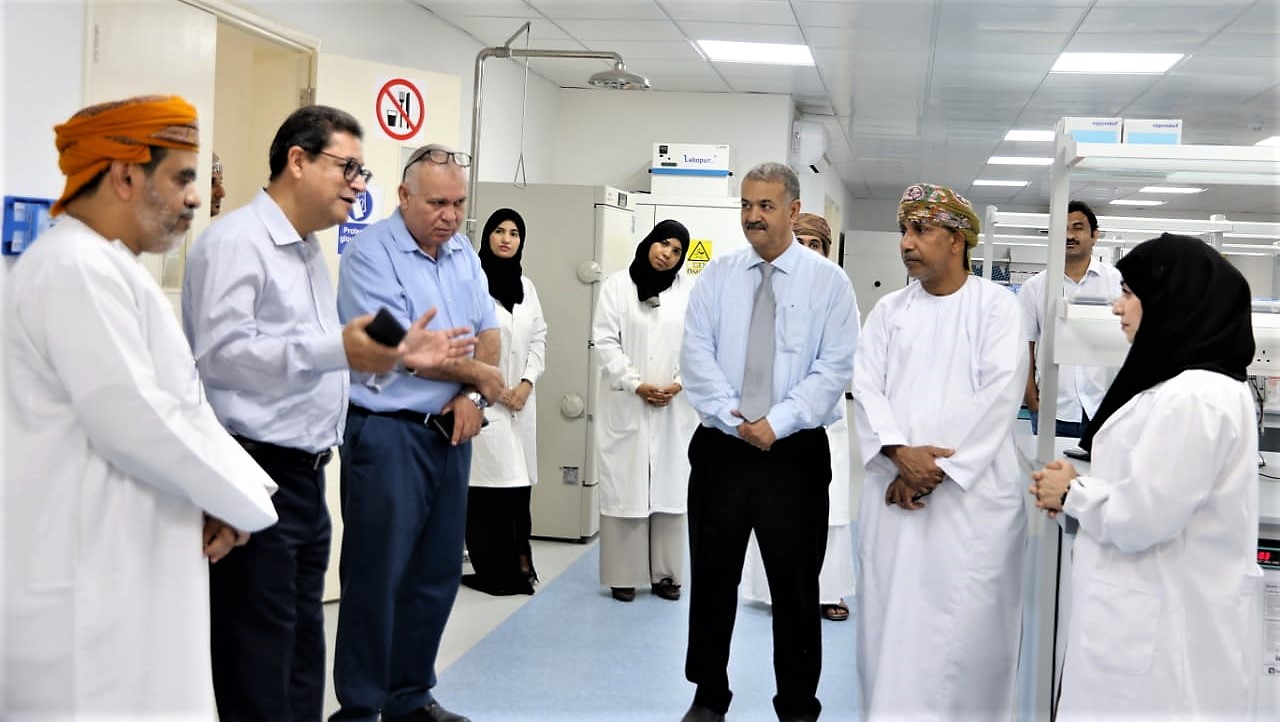Development and expansion of sustainable date palm production systems

An ICARDA-led research project funded by the Gulf Cooperation Council (GCC) improves date palm crop management, creates and transfers best-practice technologies, conserves and further develops date palm germplasm, and reinforces the capacities of national researchers and farmers.
A key commodity throughout the Arabian Peninsula, date palm is an important agricultural staple, a source of feed and fuel, and a building material. To increase its productivity in the Arabian Peninsula, ICARDA worked to improve production methods, including the following:
Implementing and expanding liquid pollination. By-hand pollination of date palms has traditionally been expensive, time-consuming, and labor intensive. Spraying palm trees with a pollen solution via hose, by contrast, is a cheaper and equally effective method compared to conventional pollination methods. In fact, because production costs decreased significantly, the value of production per ha increased by almost 50% in some cases.
Introducing subsurface irrigation maximized date palm production. In a well-implemented system, subsurface irrigation reduces water loss and run-off while providing weed control. The precise and uniform delivery of water also improves crop yield.
Decreasing drying times in polycarbonate chambers (by typically 4-5 days) reduced labor costs and the amount of dust in storage chambers, providing cleaner fruit.
Promoting Integrated Pest Management (IPM) as an alternative to chemical pesticides which cause damage to the local environment and its human, flora and fauna populations. ICARDA promoted the use of bio-pesticides and other more natural options. The organic pesticide, Coragen, gave promising results, as did three bio-pesticides employed in Saudi Arabia: matrin (.5% solution); paraffin oil; and abamectin with sulfur (1.8%). The use of trichogramma — a miniscule predatory wasp that can feed on over 200 insectisoids — is also being explored as an option.
As the project moves on to the next stage of development (2018-22), ICARDA and its partners hope to work on further management organization, water efficiency, and IPM options, particularly combating red palm weevil proliferation.



